News & Articles
Browse all content by date.
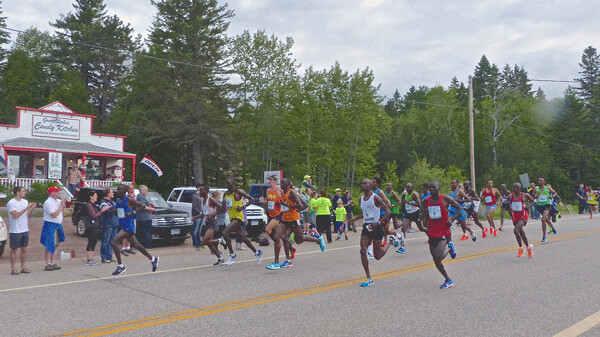
If you watched the first few miles of Grandma’s Marathon, you anticipated a massive, because the lead group numbered 19 runners. By the middle of the race, that number dropped to 14, then 12, and then it became a 2-man, side-by-side duel.
But when the race wound down to the final turn to the finish, the familiar face and form of Elisha Barno was out in front, running alone to victory — his unprecedented third consecutive victory at Grandma’s.
Barno finished in 2 hours, 12 minutes, 8 seconds, which was not as fast as his winning time the last two years, but it was enough to outdistance his fellow-Kenya countryman Geoffrey Bundi, who finished his first competitive marathon at 2:13:32, nearly a minute and a half behind. Strange but true, an attempt to find his missing water bottle may have prevented the closing duel we might have expected.
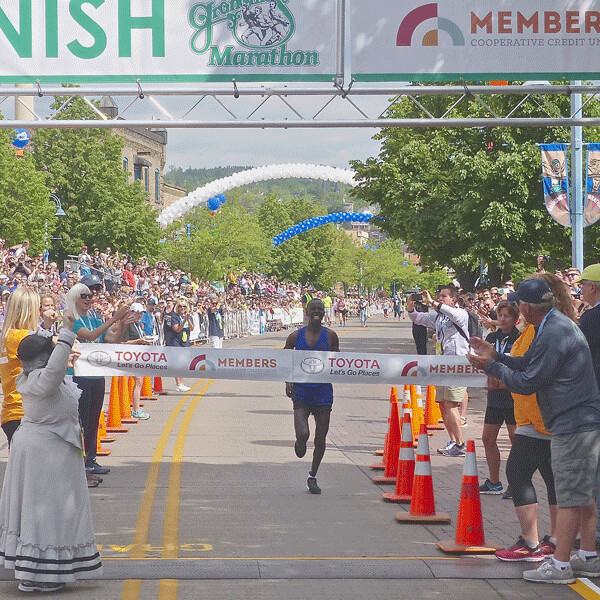
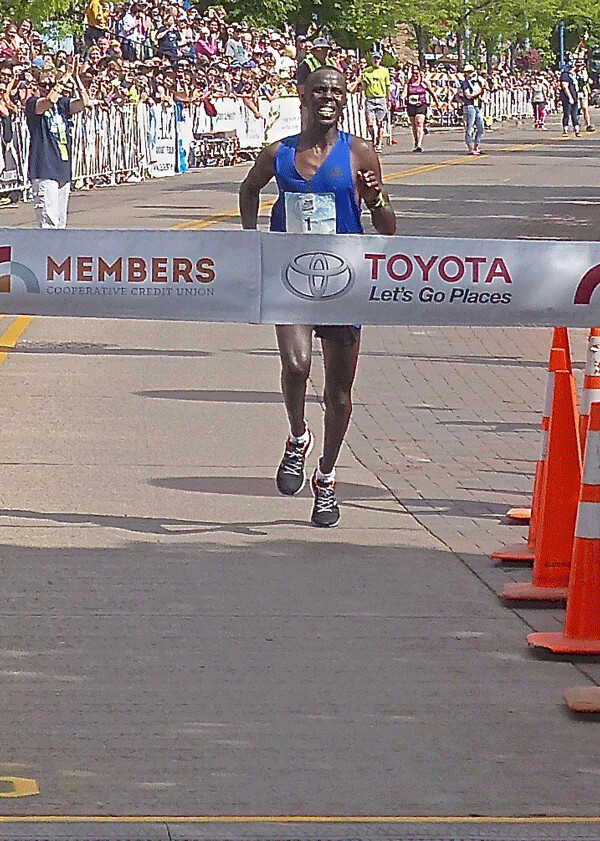
“I worried about this guy,” said Barno, nodding toward his comparatively unknown challenger. “He is very strong. When I tried to go ahead of him, he pushed back. Very strong.”
Bundi, 29, and a runner of half-marathons, said he was back in Kenya and checking out some marathons on Youtube when he decided to come to Duluth. “I thought this course looked very nice, so I chose it for my first marathon,” Bundi said. “I’m strong, but he’s strong too.”
When the race started, just south of Two Harbors, Bundi said everybody looked strong. But he stayed with the lead group, and as they reached London Road’s long straight, Barno made a move, possibly to size up his opposition. Bundi went with him, but nobody else did.
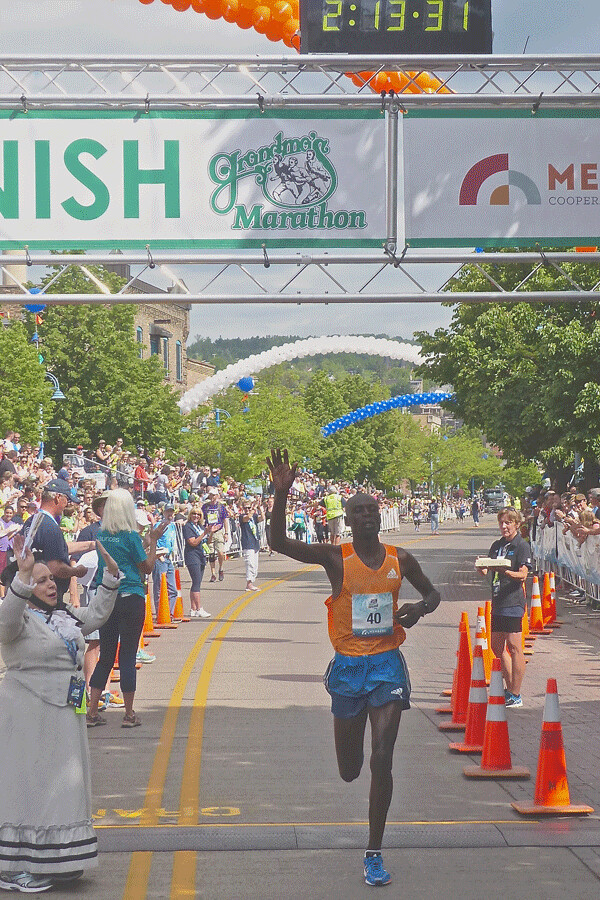
“When he went faster, I tried to go with that man,” Bundi said. “Nobody else did, and that was good.”
Barno, who has a habit of glancing back over his left shoulder occasionally, maintained his pace as they went up Lemon Drop Hill, but Bundi stayed with him, right until they came to a water station. Bundi had a special sports-drink concoction in his personalized water bottle, and as they went past the station, Barno grabbed his bottle for a quick drink, but Bundi couldn’t find his.
“I was looking for my water bottle but it wasn’t there,” Bundi said. He broke stride, and veered all the way across London Road to grab a generic water bottle. But in the process, he lost possibly 10 strides. And he never caught up.
Barno had no idea what had transpired. “I quickened my pace, and when I looked back, I was surprised when he wasn’t there,” Barno said. “In a marathon, you have to be ready for everything, so I adjusted my strategy.”
That strategy became maintaining a solid pace to keep the lead interval, and afterward Bundi said that he couldn’t be sure, but losing a few strides over the missing water bottle certainly prevented him from staying even with Barno, and may have prevented him from winning his first-ever marathon.
Macdonard Ondara was third (2:14:42) and Christopher Kipyego — ageless at 43 — was fourth and added another chapter to his lofty record at previous Grandma’s. He won in 2011 and 2014, took second in 2010 and third in 2014. He also won the Twin Cities Marathon in 2012.
Like Bundi, Barno said he intends to come back to Grandma’s next year, too, and he laughed lightly when asked if he might go on and win 10 in a row. “I like Duluth,” he said. “It is like my homeland because it is filled with happy people.”
Bundi said he grew up in Nyamira, Kenya, which is near Mokomoni in Kenyoro Primary. “We lived 7 kilometers from school, so I would run it four times every day -- to school, home for lunch, back to school, and back home,” Bundi said. “I’ve been training in Mexico, at Zacatecas, near Guadalupe, but I’m going back to Kenya now.”
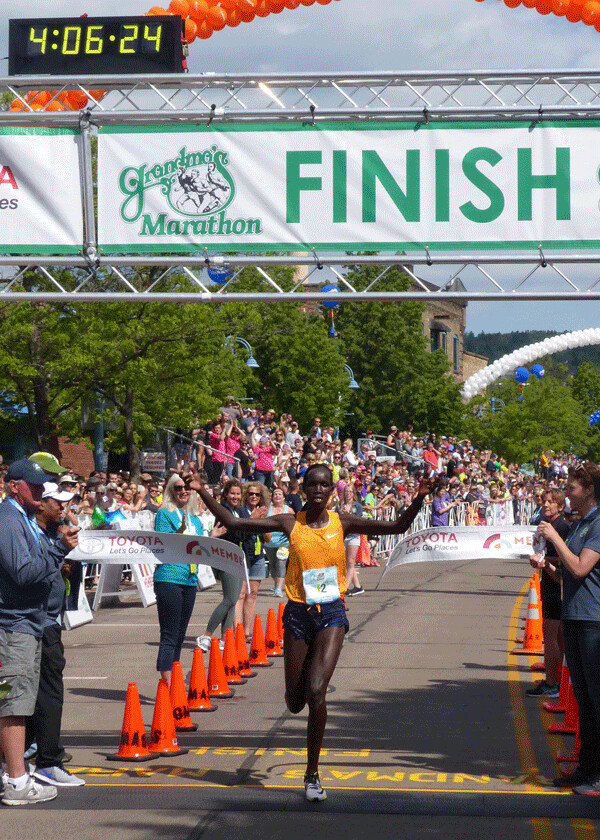
The women’s portion of the 26.2-mile Grandma’s Marathon was similar, from the standpoint of anticipating a great duel to the finish. Hellen Jepkurgat from Kenya and Askale Murachi from Ethiopia ran away to turn it into a two-woman race. At the end, though, Jepkurgat edged away to a 16-second lead that lasted until the finish. Sixteen seconds may not seem like much in a 26.2-mile run, but being second by that much makes it insurmountable.
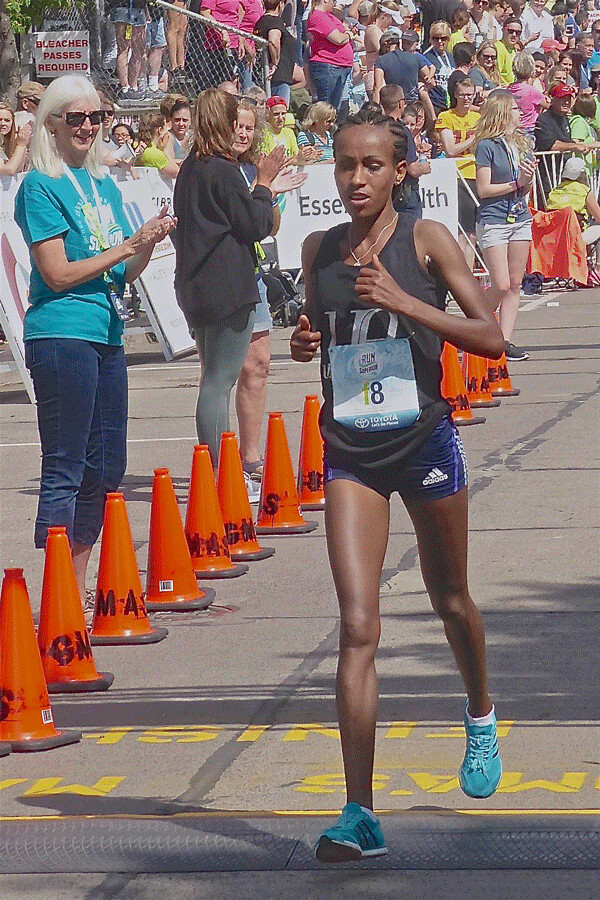
Both the men’s and women’s winners earned $11,500 from the purse of $100,000.
Evans Kurui won the men’s Garry Bjorklund half-marathon in 1:03:06, about a half-minute ahead of Weldon Kirui, and Biruktayit Degefa won by three minutes over Gladys Cheboi. The big news in the women’s half-marathon was Duluth native Kara Goucher, two-time Olympian, who finished fifth.
Goucher has been sidelined for probably the longest stretch since she started running, first by knee surgery and more recently a pulled hamstring. She said she came home to run Grandma’s but had no intention of competing to win. “I just want to see where I’m at,” said Goucher before the race. She surprised herself and her modest projections by her 1:15:14.
If close finishes were important, the wheelchair racers created two amazingly close finishes. Aaron Pike beat Joshua George by a hundredth of a second. Pike and George, both from the University of Illinois wheelchair racing organization, both finished with 1:29:02 clockings, with Pike taking it by about a wheel length.
Amanda McGrory defeated Susannah Scaroni in the female battle of Illinois racers, both clocking 1:40:42 with the margin decided by thousandths of a second.
| Tweet |


